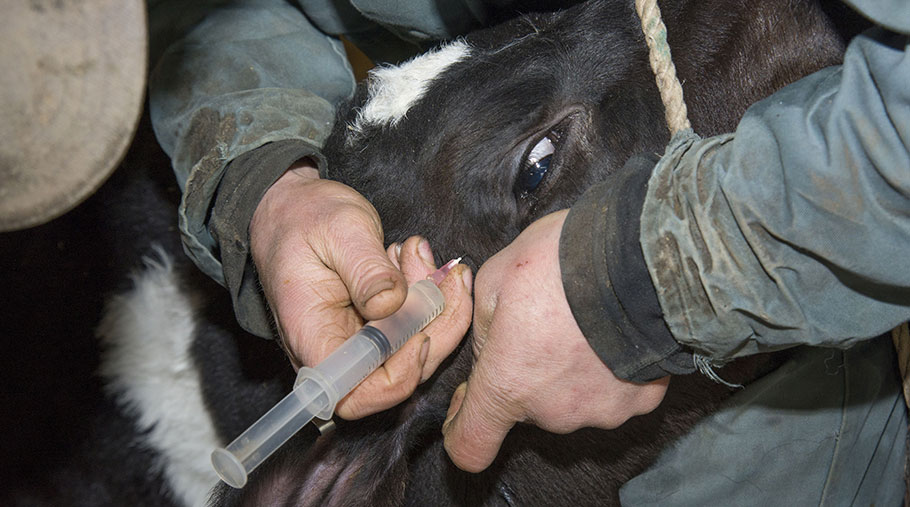Nine anti-inflammatory drugs for farm animals suspended
 © FLPA/John Eveson/REX/Shutterstock
© FLPA/John Eveson/REX/Shutterstock Veterinary authorities have suspended a group of non-steroidal anti-inflammatory drugs containing diethanolamine (DEA) following a European ruling the products pose a health risk to consumers.
The Veterinary Medicines Directorate (VMD) stated the ruling affects nine products, although does not apply to non-food producing animals.
The move comes over fears DEA is a “possible risk” to consumers, as stated by the The International Agency for Research on Cancer in 2013.
A European Medicines Agency consultation with the Committee for Medicinal Products for Veterinary Use discussed evidence from a range of literature reviews and laboratory trials, including studies using mice last month.
See also: Video: Step-by-step guide to disbudding calves
DEA is not an active ingredient but an excipient, meaning it acts as a carrier of the active ingredients, say vets.
The NFU stressed authorities were not recalling products and they could continue to be distributed by wholesalers and prescribed by vets while stock remained available.
Last week, the VMD said Flunixin remains available but should be dispatched with a “caution in use” letter.
The nine products are:
- Allevinix 50 mg/ml solution for injection for cattle, pigs and horses
- Cronyxin injection, 5% weight in solution for injection
- Dugnixon 50 mg/ml solution for injection for cattle, pigs and horses
- Finadyne 50 mg/ml solution for injection
- Flunixin 50 mg/ml solution for injection for cattle, horses and pigs
- Meflosyl 5% solution for injection
- Norixin 5% solution for injection
- Pyroflam 50mg/ml solution for injection for cattle, horses and pigs
- Tribrissen 48% suspension for injection
Farm effect
The Pig Veterinary Society president Duncan Berkshire said DEA was not widely used in the pig sector and the impact of its removal on pig welfare would therefore be minimal.
“But it does take a tool away from the armoury that may be used in the future,” he added.
Cattle expert and veterinary surgeon Keith Cutler said cattle vets and farmers would have probably been familiar with Finadyne and Flunixin but there were other good DEA-free products available.
“One way in which Finadyne and Flunixin could have been superior was in addressing endotoxin, for example in cases of toxic mastitis but this is more anecdotal,” said Mr Cutler, who advised that there are other anti-inflammatories that were DEA-free available.
“This will be for treating lame cows, calving issues, caesareans and disbudding and when dealing with castration and mastitis in cattle and sheep.”
